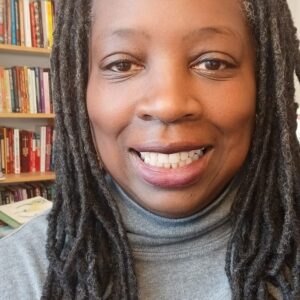The Sixteenth Sunday after Pentecost (Proper 18), September 8, 2024
August 14, 2024 | by Gabrie'l Atichson
| Reading 1 | Reading 2 | Reading 3 | Reading 4 | Reading 1 Alt | Reading 2 Alt |
|---|---|---|---|---|---|
| Proverbs 22:1-2, 8-9, 22-23 | Psalm 125 | James 2:1-10, [11-13], 14-17 | Mark 7:24-37 |
Crumbs
This week, our text in James 2 tells us in clear terms not to have distinctions between people; and yet, the story of the Syrophoenician woman in Mark 7 demonstrates a time when Jesus may have discriminated against a woman because she is a Gentile.
The author of James 2 is critical of people who show favoritism to the rich in their assembly and yet tell the poor to step aside or to sit at their feet. Because God has shown favor to the poor, we should do the same. Partiality is defined as sin in James 2:9, and we fail the law when we fail to treat the poor with favor. We will not receive mercy if we do not demonstrate mercy for others. Further, simply being kind is not enough, we also must work to fulfill the needs of the poor. Faith by itself without work, is dead. (James 2:17)
Coupled this week with a powerful message about not showing partiality in James, is a reading in Mark 7:24-37, where Jesus is dismissive of a woman because she belongs to a different ethnic group. In Mark 7, Jesus is winding down after a long day of healing others and tries to move away from the crowds. He enters a house but “could not escape notice.” (Mark 7:24b) He encounters a woman whose daughter has an unclean spirit.
We learn that the woman, who is not only having very bad timing, is also a Gentile. Understandably, for this woman, the situation is urgent. The woman begs Jesus for help, and he is initially very dismissive of her. He says let the children be fed first and explains that it would not be fair to throw the food meant for the children to the dogs. There may be a literal meaning behind these words. Perhaps Jesus is asking the woman to wait until he and his disciples have had a meal. However, he may also mean that his ministry is essentially meant for the Jewish people, those who are culturally connected to the scripture, and the meaning of this moment.
The mother’s response is that even the dogs are allowed to eat the crumbs that fall from the table. Her counterpoint means that even though the original ministry was meant for the Jewish people, those outside the culture who are clearly moved by the message should now be included in the blessings. Jesus seems surprised by the woman’s argument and rewards her for her faith. Finally, when the woman returns home, she learns that her daughter has been healed.
Are we to believe that Jesus’s initial, terse response to the woman was from a sense of exhaustion and impatience? Or, was Jesus feeling protective of his peace and his energy? Is it possible that the Syrophoenician woman taught him a lesson about how expansive his ministry would be? Clearly, in their exchange, we begin to see the seeds being planted of a religion that would be accessible to all who would believe.
 Gabrie’l J. Atchison earned an M.A. in Religion from Yale Divinity School, and a Ph.D. in Women’s Studies from Clark University. She is an adjunct professor of Gender Studies, a blogger, and an author. Dr. Atchison is the editor of Environment and Religion in Feminist-Womanist, Queer, and Indigenous Perspectives a series by Lexington Books. She is author of Are You The Unchurched?: How to Develop a Relationship with God Inside or Outside of Church and a co-author of More to this Confession: Relational Prison Theology with Chris Barbera. She is a contributor to Preaching the Uncontrolling Love of God, Edited by Jeff Wells, Thomas Jay Oord, et. al. and The Creation Care Bible Challenge, Edited by Marek P. Zabriskie. She lives in Buffalo, New York with her dog, Jack
Gabrie’l J. Atchison earned an M.A. in Religion from Yale Divinity School, and a Ph.D. in Women’s Studies from Clark University. She is an adjunct professor of Gender Studies, a blogger, and an author. Dr. Atchison is the editor of Environment and Religion in Feminist-Womanist, Queer, and Indigenous Perspectives a series by Lexington Books. She is author of Are You The Unchurched?: How to Develop a Relationship with God Inside or Outside of Church and a co-author of More to this Confession: Relational Prison Theology with Chris Barbera. She is a contributor to Preaching the Uncontrolling Love of God, Edited by Jeff Wells, Thomas Jay Oord, et. al. and The Creation Care Bible Challenge, Edited by Marek P. Zabriskie. She lives in Buffalo, New York with her dog, Jack
